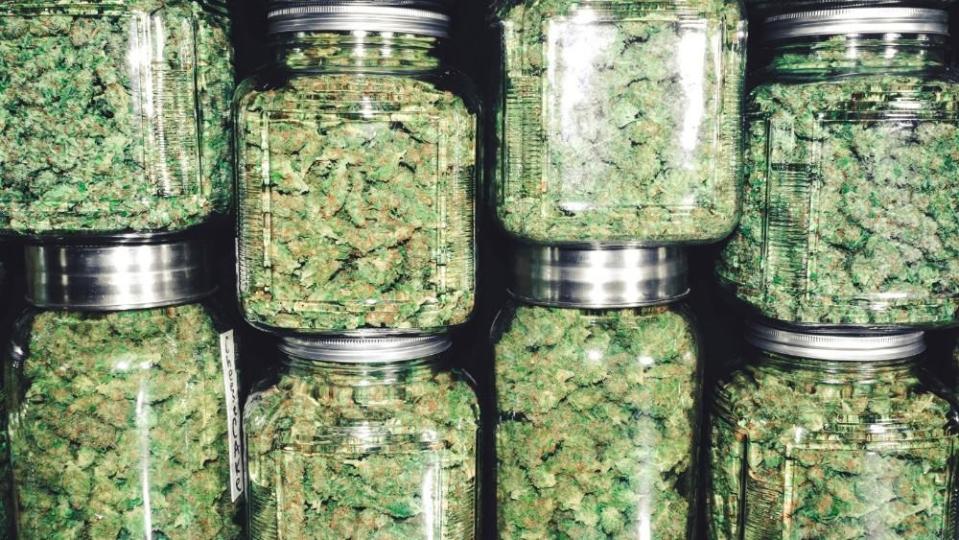Health Canada Gave CannTrust (TSX:TRST) a Lifeline: Could the Stock Recover?

Troubled cannabis stock CannTrust Holdings (TSX:TRST)(NYSE:CTST) is battling for survival after illegally growing cannabis in the latest scandal to rock the Canadian marijuana industry. Instead of a straight licence revocation for the violation, Health Canada partially suspended the company’s sales and processing licences, and there are hints for their potential reinstatement once the cause for suspension is no longer present.
Given the seemingly lenient treatment by the industry regulator, the company has a fighting chance to survive a total collapse.
What’s required for survival?
For CannTrust stock to recover, the company has to retain its cannabis licences, preserve cash resources until sales resume, hope to retain its client base, and minimize regulatory penalties while vigorously defending investor lawsuits.
Until such a time the regulator is satisfied that the cause for licence suspension no longer exists and licences get restored, management has to tightly sail the damaged ship. The big question is if the company can survive a total collapse before its licences are restored.
A case for licence restoration
The company promptly set up a task force to proactively deal with the crisis and craft ways to quickly bring the company back into full regulatory compliance, and Health Canada could have softened its stance in acknowledgement of signs of progress and sincerity on the part of new management.
Given that two senior executives were fired for cause, and company voluntarily halted all product sales in July while making frantic efforts to rectify the situation, the latest suspension of licences has no significant financial impact to the company, for now.
In my personal view, it seems like the company’s constantly reported engagement efforts with Health Canada to regain the regulator’s trust are beginning to pay off. It’s increasingly possible that the company could get its licences fully reinstated.
Cannabis is already a highly regulated industry with very high minimum security and operating standards for licensed producers. The assurances that the company was asked to give to the regulatory body for its licences to be restored are mere standard industry practices; there’s nothing sinister or punitive about them.
It’s required that a marijuana producer should have strict measures to control product movement within and out of sites. Companies have to naturally promote personnel knowledge of the law and industry standards, while tight record retention and inventory tracking systems come standard for every serious business, and this is what the company has to prove to get its licences reinstated.
That’s an easy task for a serious management team.
Inventory could have been replenished
The company was allowed to continue growing and harvesting current crop batches but will not be allowed to plant new ones until licences are restored. Actually, we know that grow operations continued undisturbed since the scandal broke out; the company could easily have replenished its clean inventory levels, even if 53% of June 30th inventory could be written off.
The challenge is how fast the company could return to historical sales levels if licences are restored and whether traditional markets will be ready to forgive and forget.
Could shares recover?
It’s still too early to conclude on licence restoration, but if the special task force is as effective as it sounds in press releases, CannTrust could be back in regulatory compliance relatively quickly before its $250 million cash balance at June 30 gets depleted.
Management did well to quickly prepay a $13 million outstanding mortgage loan that required regular interest payments, while the company’s decision to reduce its staff by 20% will save millions in remuneration expenses. Any small savings are necessary during this period of zero revenue generation.
A recovery is still possible, but the income statement is totally busted, and the balance sheet’s health is obviously deteriorating. Add to this the threat of further regulatory penalties and investor lawsuits, and you have a significantly uncertain future for the cannabis firm, but with a huge potential for outsized gains if licences are restored in good time.
That said, buying the stock today is still more a gamble on regulatory decisions and a strategic buyout than a show of faith in TRST’s financial position.
More reading
Hate Taxes? Then Do This 1 Awesome Trick With Your TFSA and RRSP
TFSA Investors: Lock In This $509/Month Passive-Income Stream Today
The Stock Market Is at a Record High: Is it Time to Get out?
These Jaw-Dropping Facts Will Change Your Mind About the Internet of Things
Fool contributor Brian Paradza has no position in any of the stocks mentioned.
The Motley Fool’s purpose is to help the world invest, better. Click here now for your free subscription to Take Stock, The Motley Fool Canada’s free investing newsletter. Packed with stock ideas and investing advice, it is essential reading for anyone looking to build and grow their wealth in the years ahead. Motley Fool Canada 2019

 Yahoo Finance
Yahoo Finance 